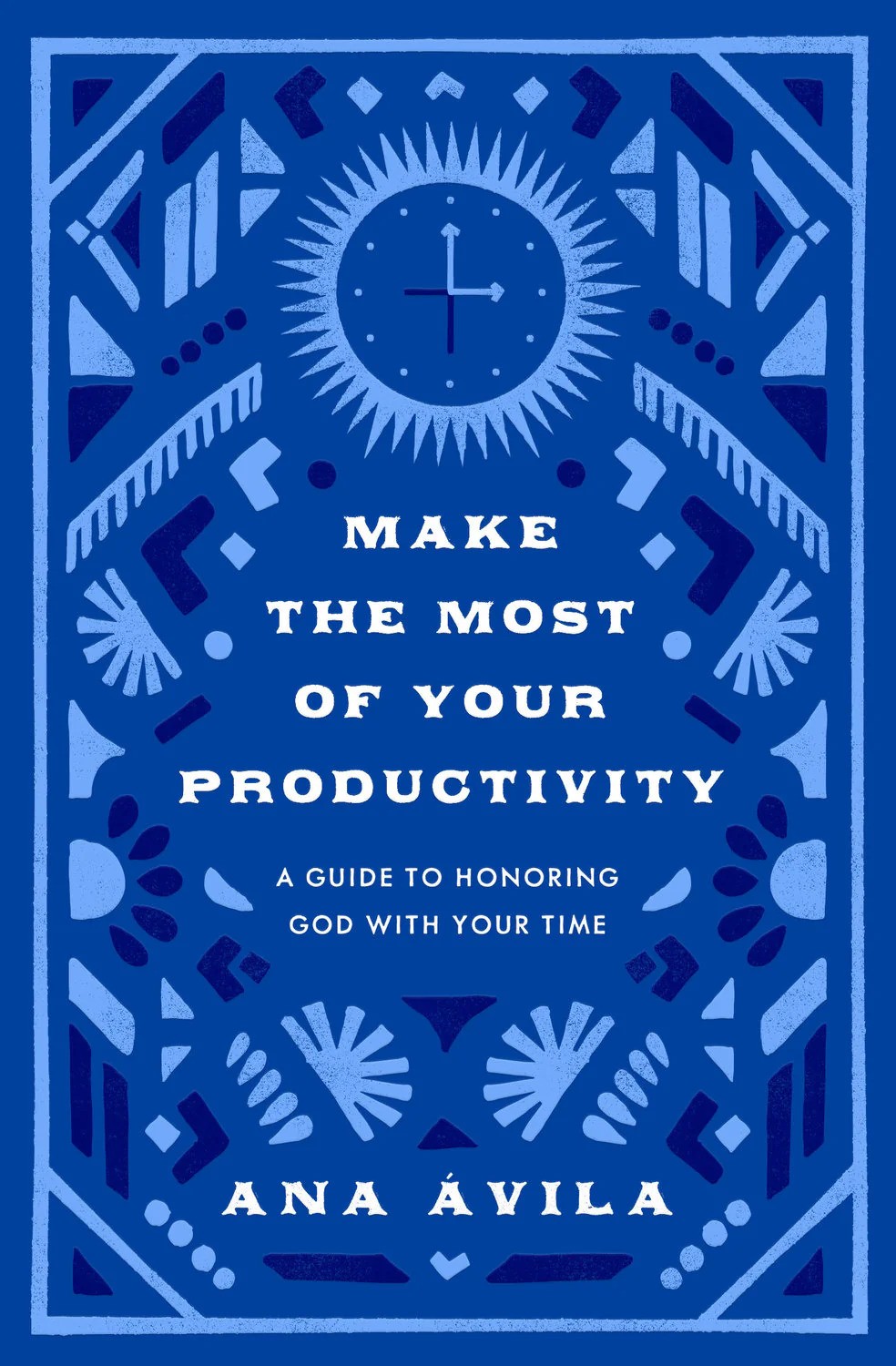How do you define productivity?
When I’ve thought about productivity in the past, I would usually define it as how much output you can produce in the shortest amount of time. That’s how I would assess my own productivity, and shamefully, how I would judge other people’s productivity too. In Make the Most of Your Productivity, author Ana Ávila reshapes our approach toward productivity by going back to the Bible and seeing how God designed the world and us.
A New Definition
Our Creator God made us and our world with purpose and design. We were made, not to be god or replace god, but to glorify God by serving him and those around us. To that end, he has given us time, energy, relationships, giftings, and so forth. The productive person, then, is someone who takes whatever resources they have received and seeks to use them to fulfil the purpose for which they were put on earth (6). In other words, using what God has given us for its intended purpose is being productive under God.

Make the Most of Your Productivity: A Guide to Honoring God with Your Time
Ana Ávila
Make the Most of Your Productivity: A Guide to Honoring God with Your Time
Ana Ávila
Many people today idolize achievement, driven by validation, status, or financial gain. Others lack self-discipline and motivation altogether. How can Christians pursue healthy, biblical goal-setting that avoids extremes?
In this user-friendly guide, Ana Ávila teaches 6 principles to help you honor God with all you have and reflect his character. Whether you are achievement-oriented or struggle with discipline, Ávila will show you how to reorient your time, boundaries, decisions, focus, habits, and tools around God’s main design for productivity: serving him and helping others.
With Jesus now reigning as Lord, God is at work in his world transforming people, and he has given us our tasks to fulfil our purpose under him. He is doing his sovereign work, and a faithful Christian is doing his or her part. That will look different for each one of us, but the point is not how much we are doing, but rather, whether we are doing what we were designed to do.
This solves so many of our problems when it comes to productivity. How true it is that we so easily base our self-esteem or self-worth on how time-efficient we consider ourselves to be. It can be tempting to think I am a productive member of society because of how much content I produced today. But when we remember we are God’s image-bearers—indeed, now God’s sons and daughters in Christ—we no longer need to find our identity in our daily achievements. Truly productive people do not seek to be productive in order to discover their purpose, but because they have already found their purpose in God and now want to live it out. (12) Have you found your purpose under God? Do you know why he created you? If not, the early chapters of this book will help.
Feeling the Tensions
I hear regularly from Christian women who grapple with how to live faithfully under God. They feel the tension of trusting his providence while at the same time being disciplined and diligent. Or perhaps it’s knowing what is God’s responsibility versus our responsibility. Or how work and rest fit together.
Ávila threads the realities of these tensions throughout her book. First, our efforts at productivity must be founded on the conviction that God alone is omnipotent, omniscient and omnipresent. If this is true, I can rest every night even with the weight of responsibilities weighing on me. I can ask for help without fear of being called ignorant. I can enjoy my day off without feeling guilty I’m not at work. I am not God. A big view of God keep us from thinking we are responsible for meeting every need.
Second, we need a realistic view of our own limitations. Even if I wanted to achieve greatness, I am a limited, finite, fallen human being. I have limits to my knowledge, capacity, time, geography, language, and so on. These limits are important factors as we think about productivity. We are productive when we take the resources we have been given (not the ones we haven’t) and use them for God’s glory and the good of others.
We can be unproductive on both ends of the spectrum. Perhaps a person is tempted toward laziness and justifies it by suggesting God is in control and it’ll all work out. For another person, they’re tempted to lie awake all night hypothesising about how they’re going to solve all the problems of the next day, telling themselves they’re just being diligent and planning wisely. We need continual reminders of God’s nature and our design to keep us from drifting.
Character is King
One of the most helpful ‘aha moments’ of the book was the section on character. Perhaps you’re tempted to read this book looking for systems or habits that might make you a more productive person. But that would be the wrong place to begin: productivity starts with character.
Ávila identifies four essential character traits that directly correlate to productivity: faith, purpose, diligence and depth. Developing our faith (in God at work in us) is key to addressing unproductivity that stems from fear of failure or lack of confidence. Being a person of purpose leads to freedom to start and continue what we have purposed to do. Developing diligence means we can be productive even when we don’t feel like it. Finally, being a Christian with depth means we aren’t blown aside by distractions: we can hold fast to the main thing and freely say no to other things when we need to.
If you’re struggling with productivity, don’t jump to practical changes. Instead, meditate on the opening chapters of this book and develop the necessary character. Don’t think ‘finding a new notebook’ will solve all your problems. Address what is going on in your heart first—then buy the notebook!
Getting Practical
The second half of the book is devoted to practical issues of productivity. The habits and systems introduced were not groundbreaking, though I can imagine readers with more life-pressures benefitting from the organisational techniques. Their descriptions are quite detailed and complex on first reading and may not suit every reader’s needs. But even for those not looking for an intricate system, there are still helpful tools and processes to glean with immediate effect. Among other things, Ávila provides guidance on how to make good decisions, what to do if you need to say ‘No’, and how to break down a major project into achievable goals. This section’s strength was its reflection and action sections at the end of each chapter. These forced me to slow down and implement simple, small changes into daily life.
Overall, Make the Most of Your Productivity would be a great read for anyone from young people starting out in the workforce to mums entering into the ‘stay-at-home-mum’ stage. All of us need a reminder of God’s nature, our design and a fresh understanding of what it truly means to be productive.















